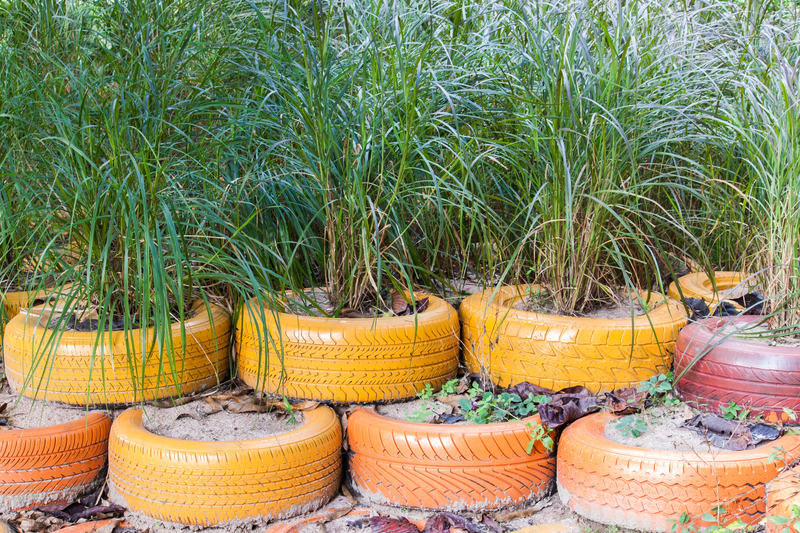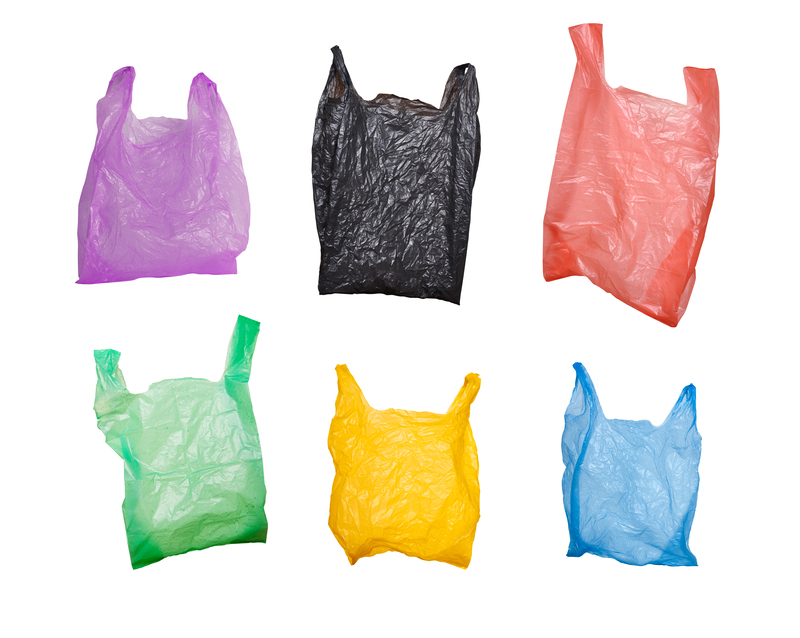Smart Ways to Handle Outdated Charger Disposal
Every year, millions of people replace their devices, resulting in a staggering amount of outdated chargers piling up in drawers, offices, and landfills. What should you do with all those old chargers? Disposing of them properly is crucial, not only for your home's tidiness but also for preserving our environment. This comprehensive guide explores smart ways to handle outdated charger disposal, helping you make informed, responsible, and sustainable choices.
Why Proper Charger Disposal Matters
Chargers might seem like insignificant clutter, but their disposal has far-reaching effects. These devices often contain plastic, metal, and sometimes hazardous components. Throwing them in the regular trash can contribute to toxic e-waste, which pollutes soil and water sources, threatens wildlife, and hinders resource recovery.
The Growing E-Waste Problem
- Over 50 million tons of e-waste are produced globally each year.
- Most outdated cables and chargers are made from non-biodegradable materials.
- Improper disposal can release heavy metals that remain in the ecosystem for centuries.
By choosing responsible and eco-friendly charger disposal methods, you contribute to a cleaner planet and help conserve valuable materials that can be recycled and reused in electronic manufacture.

1. Reuse and Repurpose: Give Your Charger a Second Life
One of the smartest ways to dispose of an outdated charger is to avoid immediate disposal altogether. Chargers may outlive their primary use, but many still function perfectly. Consider these creative alternatives before parting with them:
Repurposing Ideas for Old Chargers
- Backup power: Keep an old charger at your workplace, in the car, or in your travel bag as a spare.
- Donation: Give chargers to friends, family members, or local organizations who might still use older devices.
- Charging stations: Use old chargers to create multi-device charging stations at home or in communal spaces.
- Educational projects: Science teachers or hobbyists might use obsolete chargers for safe electronics experiments.
*Tip: Be sure that the charger is in good working condition before reusing or gifting it. Faulty or frayed chargers can be hazardous!*
2. Donate to Those in Need
There are many organizations and community programs that accept working electronics, including phone and laptop chargers. Donating is one of the most sustainable outdated charger disposal options, as it extends the lifecycle of the product while benefiting others.
- Schools and Non-Profits: Many educational institutions and non-profits accept electronics for students or families in need.
- Charity shops: Local thrift stores or charities may accept chargers to sell with donated electronics, supporting good causes.
- E-Waste drives: Some community events specifically collect working electronics for redistribution, recycling, or reuse.
*Before donating, clean your charger and test it for functionality. Include a note or original packaging if available.*
3. Recycle Responsibly
When reuse or donation isn't feasible, the next best option is responsible charger recycling. Many chargers contain copper, aluminum, and high-grade plastics that can be reclaimed. Recycling ensures hazardous substances don't end up polluting the ecosystem.
How to Recycle Your Old Charger
- Locate a certified e-waste recycler:
Use directories such as Earth911 or your local government website to find nearby electronics recycling locations. - Use retailer take-back programs:
Many electronics stores (Apple, Best Buy, Staples) offer free recycling kiosks for chargers, cables, and small electronic items. - Manufacturer mail-back:
Some device manufacturers have mail-in programs for old accessories--they cover postage and proper recycling.
Important: Never put chargers or cables in your curbside recycling bin--they require specialized processes that general recycling centers cannot handle.
4. Participate in E-Waste Collection Events
Many communities and organizations host e-waste collection events throughout the year. These are excellent opportunities to dispose of outdated chargers and other electronics safely and in bulk.
- Check your city's website for upcoming e-waste and hazardous waste collection dates.
- Some events offer drive-through or contactless drop-off services for convenience.
- Events often accept a broad range of devices, so you can declutter in one go!
5. Trade-In and Takeback Initiatives
Many major electronics brands now offer trade-in or takeback options for chargers and accessories. While you may not receive monetary compensation for old chargers, these programs guarantee responsible recycling or repurposing.
Top Brands with Takeback Programs
- Apple: Accepts chargers and accessories for recycling in stores or through mail-in events.
- Samsung: Offers e-waste collection bins in select retail locations.
- Best Buy: Comprehensive electronics recycling, including all brands and charger types.
6. Upcycle: Creative DIY Projects
For tech hobbyists or craft lovers, upcycling old chargers and cables can be both fun and eco-smart. Repurposing these materials helps keep them out of landfills and creates something unique.
DIY Ideas Using Old Chargers
- Cable organizers: Use the flexible cord as a binder for home or office wires.
- Jewelry: Transform colored cables into quirky bracelets or keychains.
- Art projects: Incorporate old chargers into sculptures or mixed-media art for a modern touch.
- Tech decor: Old power adapters make quirky bookends or desk weights.
*If soldering or disassembling, ensure you handle components safely and avoid exposure to hazardous substances.*
7. Avoid These Unsustainable Disposal Methods
Understanding what not to do with your outdated chargers is just as important as knowing the right recycling steps. Here are some poor disposal practices to avoid:
- Do not throw chargers in regular trash: They will end up in landfills, leaching chemicals into the soil and water.
- No burning: Burning plastics releases toxic fumes and is highly dangerous.
- Avoid "wishcycling": Placing chargers in standard recycling bins contaminates recycling streams, causing more harm than good.
Understanding the Components: Why Chargers Need Special Handling
Chargers consist of various elements that require specialized recycling for maximal resource recovery and minimal environmental harm:
- Plastic Housing: Durable yet non-biodegradable, it takes centuries to decompose naturally.
- Copper Wires: Highly valuable and reusable if extracted properly.
- Aluminum and Metal Parts: Useful for manufacturing new electronics when recycled.
- Circuit Boards: Contain small quantities of valuable metals as well as potentially hazardous substances.
Frequently Asked Questions about Smart Charger Disposal
Can I put old chargers in the recycling at home?
No. Home recycling pickup isn't equipped for e-waste. Chargers should always go to e-waste recyclers or special collection programs.
How do I know if my charger is still good to use or donate?
Test the charger with its matching device, check for visible wear or fraying, and ensure it operates without overheating.
Is it safe to remove the cable from inside the charger for recycling?
Disassembly is not recommended for safety reasons. Specialized e-recyclers have the right tools and processes to do this without risk of electric shock or exposure to hazardous materials.
What about wireless chargers or proprietary charging bricks?
These should be treated like any other electronic accessory. Use designated takeback programs or certified e-waste recycling options.

Tips for Reducing Future Charger Waste
The best way to handle outdated charger disposal is to minimize waste from the start. Apply these smart strategies to avoid unnecessary charging accessories in your household:
- Embrace universal chargers: Choose devices that use standardized charging ports (like USB-C) to reduce the need for multiple cables.
- Buy quality, not quantity: Invest in reputable brands--good chargers last longer and are less likely to fail prematurely.
- Resist bundled purchases: Avoid buying spare chargers or cables unless necessary; many devices no longer include them by default.
- Encourage manufacturers: Support brands with strong e-waste recycling or trade-in programs.
Conclusion: Make a Positive Impact with Every Charger
Disposing of obsolete or outdated chargers may seem like a minor task, but it has significant environmental impact. By choosing to reuse, donate, recycle, or upcycle your old chargers, you are reducing e-waste, conserving natural resources, and paving the way for a sustainable future. Whether you choose a creative DIY project or utilize local recycling programs, every effort counts towards a cleaner and greener planet.
Remember: Smart charger disposal is about responsibility, resourcefulness, and respect for the environment. Make it your habit, and inspire others to join the movement!
For more eco-friendly tips and comprehensive guides on electronic waste management, bookmark this page and share it with friends and family. Together, we can tackle e-waste one charger at a time!